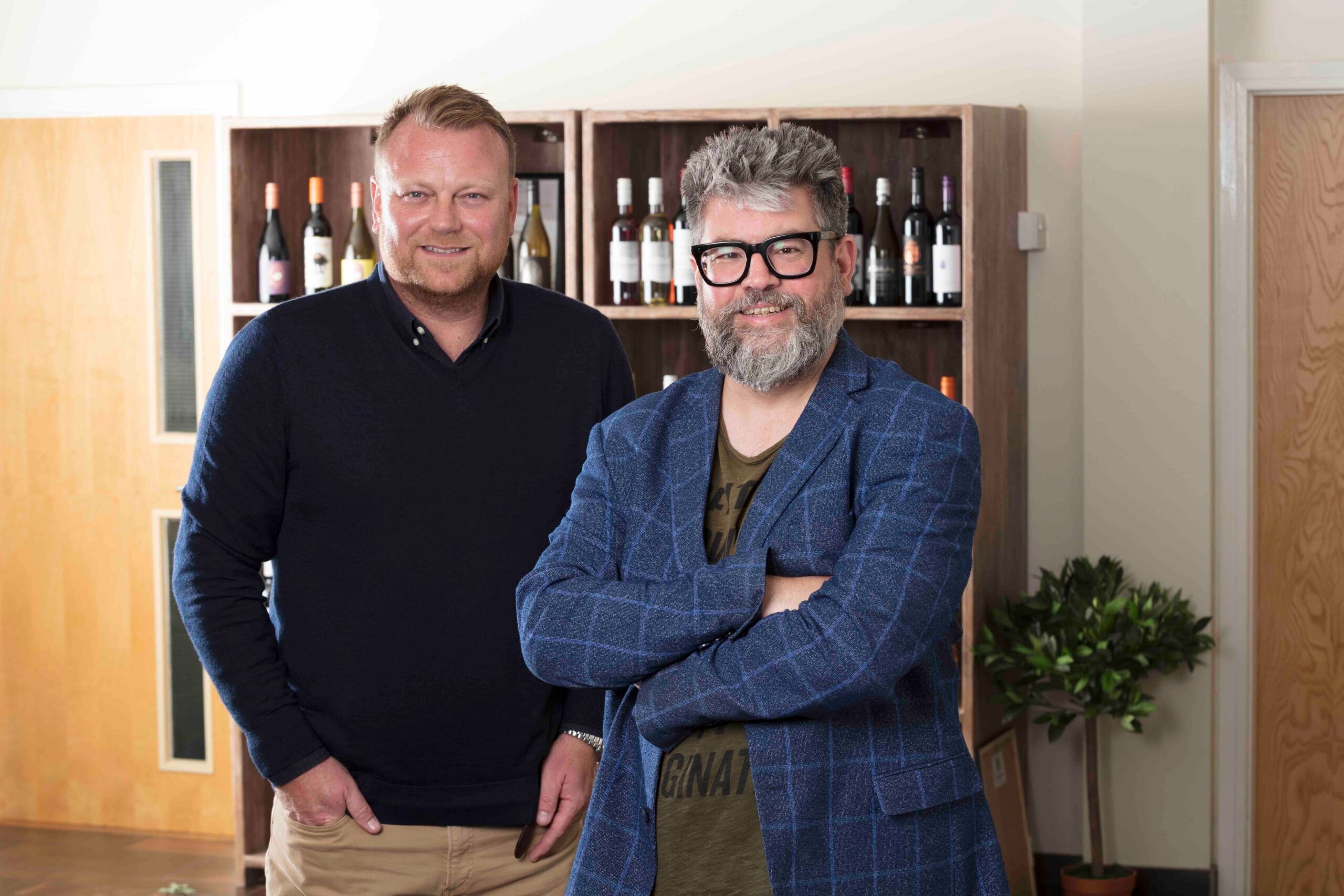Bulk wine’s role in driving a more sustainable wine industry will be one of the key themes at next week’s World Bulk Wine Exhibition (WBWE).
Perhaps it’s time the global wine industry came up with a better term than “bulk” to describe what is arguably the most dynamic, innovative and certainly fast growing part of the sector. That’s certainly what Lanchester Wines’ Mark Roberts and Andrew Porton at The Wine Fusion – two companies under the same ownership of the Lanchester Group – would like to see happen, as they are both at the forefront of the benefits that bulk wine brings to the overall wine industry.
Yet for all the potential good that bulk wine does it is still regarded by many in the trade as the grubbier end of the market. More fool them. Those in the know, well, know just how important, effective, efficient and important bulk wine now is to running a profitable, long-term sustainable wine business.
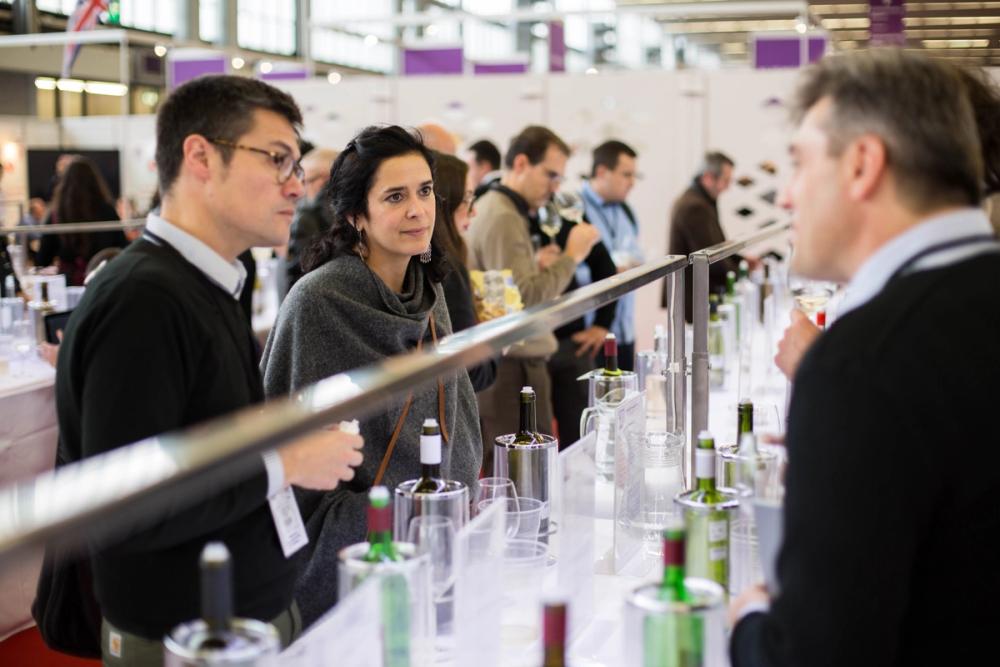
International wine buyers will be back at next week’s World Bulk Wine Exhibition anxious to secure their sources of bulk wine going into 2022
They will also be counting down the hours until the trading floor opens at WBWE and the chance to source, bid, negotiate and get their hands on the wine supplies they need for the 12 to 18 months. The pressure on buyers will be intense as there is simply far less wine around to buy on the back of some of the worst overall global vintages and harvests, particularly in some of the crucial sourcing areas in the northern and southern hemispheres, like France and New Zealand.
The competition will also be high as the bulk wine sector now attracts the best and most innovative wine buyers in the industry. It’s also not just at the entry level where bulk wine is so important, but for bottled wine well above £10.
“The savvy commercial wine buyers recognise this wine show in Amsterdam is the most important wine show there is for them. It’s why you see such a big range of buyers there from those that want high volume projects, to those who are looking for wines they can hang their hat on in terms of quality and story telling,” says Andrew Porton at The Wine Fusion.
100% bulk
Porton is also one of the biggest advocates of bulk wine as The Wine Fusion business has been built on the back of the advances that have taken place in the sector. In fact, bulk wine now accounts for 100% of the premium wine it offers to the trade.
“In the last couple of years we have bottled more eclectic and vinous wines, in even more unusual presentations than we have ever done before, all thanks to bulk wine,” he says.
The “bulk” element is simply the source of wine that it is their job to turn into the “products” they know are going to sell. He admits it might sound contradictory, but it is now quite possible to have wines of “provenance” that have been sourced through the bulk wine market.
“We are selling estate wines in bulkbulk and bottling it in the UK,” he adds. “These are wines that are commercially very attractive and can sell as authentic wines in their own right, with all the bells and whistles of their sourced-bottled cousins – but with a significant price advantage.”
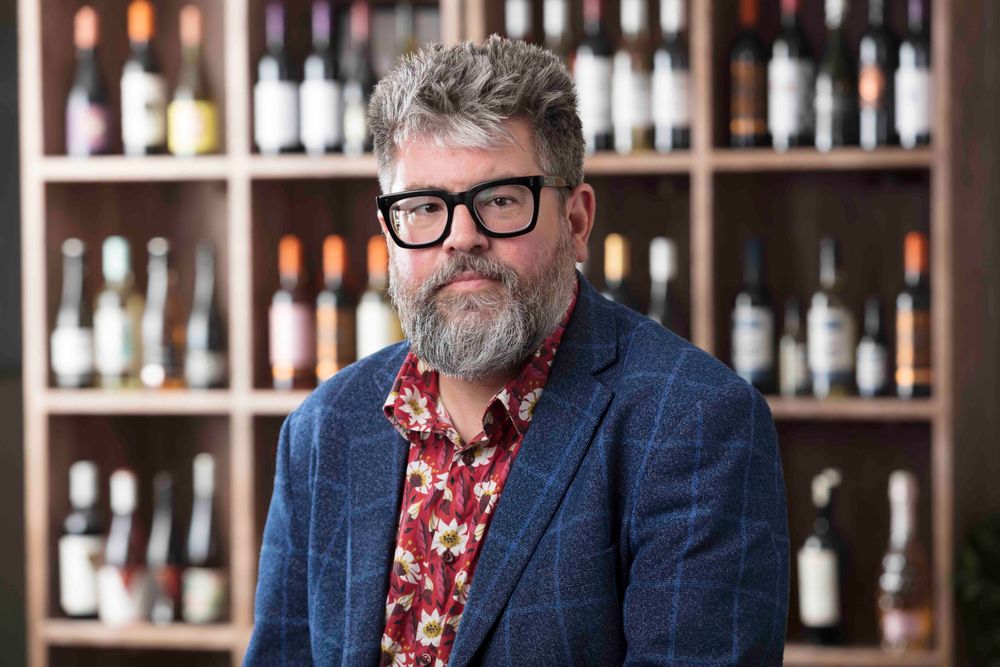
The Wine Fusion’s Andrew Porton likens bulk wine to “dream wine” as it gives him so many options to work with
He even goes as far as calling bulk wine his “dream wine” as it allows you to create products that tick all the boxes from a value and quality perspective, through to marketing, story telling and an environmental point of view.
Porton will be explaining how bulk wine has become the cornerstone of the Wine Fusion business as part of a session at WBWE looking at the role of bulk wine with private label and e-commerce (November 23 at 1.30pm).
In particular he will examine the kind of private label projects that bulk wine allows him to do with a wide variety of customers, both to sell in-store and, increasingly, online.
Serious business
The key thing to remember, he says, is that bulk wine suppliers can now be very “choosy with how they buddy up with”. They want to work with partners on a long-term basis who are willing to negotiate prices that work for both sides over a long period of time. They need the security they are going to get “the value they need” from what is an increasingly sought after product.
“We are paying the right prices for the right wines,” he adds. “We are looking to source intelligently to make contemporary wines that people want to buy.”
Porton says it is also important to stress there is “no perfect solution to all this” and that all companies are learning all the time and will have to find their own way forward.
The beauty of the bulk wine market for Porton is that this is the sector where you are getting the most value for money from the wine you are buying. That might sound obvious, but so often, the wine industry is dictated to by producers who set prices for their wines, based on what are effectively “vanity projects” where we the customer have to pay a higher price to cover all their costs and overheads. “You are paying for their project,” he claims.
The bulk sector strips all that away. “You are paying for the bits that matter and not the bits that are there for the purposes of the brand and not the customer,” stresses Porton.
If you can get the buying and sourcing right, it makes for a very effective private label proposition.
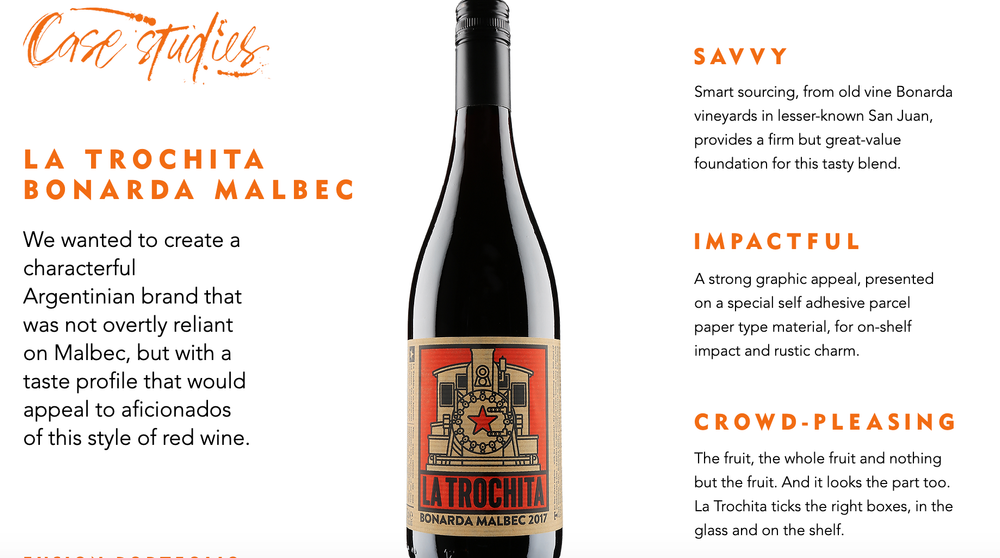
A case study of the kind of contemporary bulk wine brands that Wine Fusion is creating
“We work at the mid to premium end of the market, with single vineyards and wines that have a winemaker’s endorsement. There is very much a role for bulk wine in a premium commercial context.”
This is why online has become such an important market for exclusive wines, sourced through bulk wine, he adds. “If you look at the online environment, people want to be engaged. If you can provide them with something credible in wine terms that stands up through its marketing and has a story behind it then that becomes very powerful.”
Just because the wine has left the winery destined to go into a flexitank does not change the back story of where the wines have been made, the provenance of the vineyards, the skills of the winemaker. They are all just the same that if a wine is bottled on site, says Porton.
Sustainable push
Lanchester Wines sings very much from the same hymn sheet, says Mark Roberts, who adds we only have to look at the recent COP26 climate change conference to see how crucial sustainability has to be in any business you are running.
The fact it is sustainably better to ship wine in bulk and bottle in market is reason enough for the sector to have far more credibility and significance than it does.
“That’s why we have been investing so much in the sustainable measures we have at Lanchester Wines over the last many years,” adds Roberts. “It’s vastly better to move wine around the world in bulk.”
It is a message he is pleased more major buyers and retailers are understanding and buying into,which was not the case in previous years.
“There was often a disconnect between a retailer, their sustainability policy and buying units of wine. We were having to champion bulk wine to buyers, in order to get the buy in from their directors,” he adds. “Now sustainability is part of every conversation we have with them. That mentality has changed.”
It’s a point he will be looking to get across as part of his talk during a session on ‘Sustainability, The Circular Economy and Bulk Wine’ on November 23 at WBWE.“We want to get that more holistic message across,” he says.
Roberts says the facts around bulk wine are what drives the sustainability message. For example just one flexitank of wine could offer a saving of 725 tonnes of glass (for 187mls) and save around 2kg of CO2 per km travelled.*
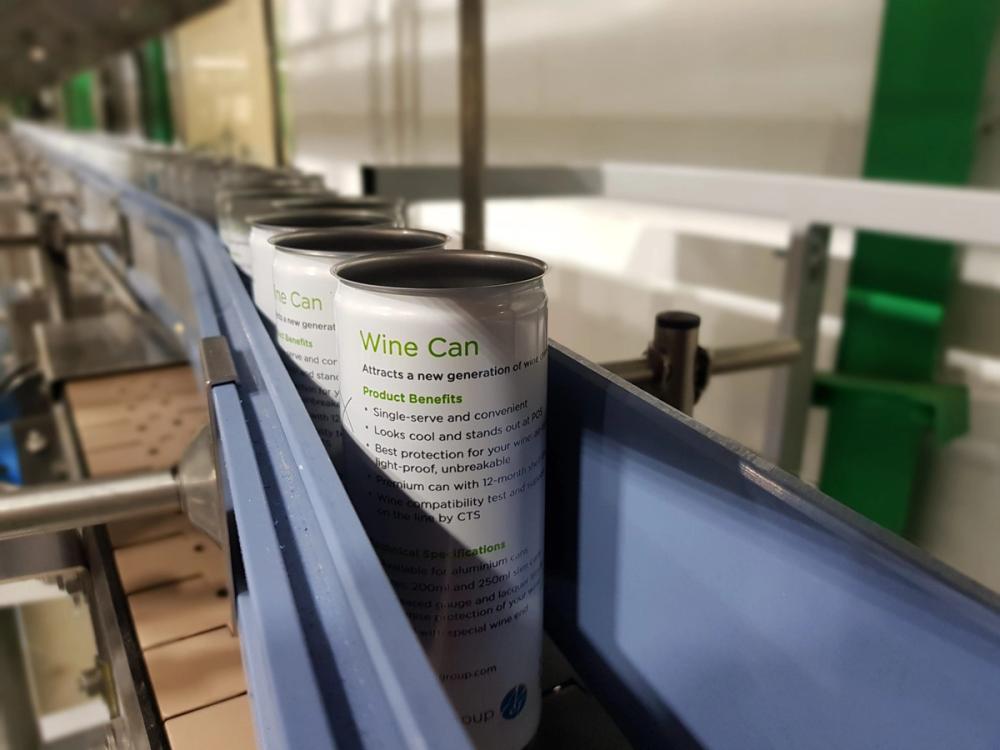
The new can line at Greencroft Bottling, part of the Lanchester Group, means Lanchester Wines can fast track and recommend wine in cans projects to its customers
The key point of difference for Lanchester Wines is to ensure it has, through its sister company Greencroft Bottling, the packing and bottling services available to offer its customers that their consumers are going to want to buy. Even then it goes the extra mile in terms of sustainability with a canned line powered by its own wine turbines.
“Our challenge is to find and work with alternative formats. Can is the obvious one, but it is not the format that comes to mind when buying certain types of wine. We need to have a Plan B and a Plan C.”
“We are already so far ahead on sustainability projects,” adds Roberts. “We have been championing this for some time.”
The group will soon be opening a new dedicated 22,300m2 (240,000 ft2) bottling hall that has had the best sustainability measures built into it from the outset. “Every bottle we fill is intrinsically linked to sustainability. We want people to join the ride with us,” he says.
How a bulk strategy works
Porton says The Wine Fusion has effectively taken the agency model, where you work so hard to tell the unique stories of the producers you are selling, and applied it to the bulk wine sector. “You take that story telling into bulk wine sourcing,” he adds.
He says the big change in bulk wine over the last 10 years is the huge variety there now is at so many more price points.
“Winemakers have responded to the fact that these bulk wines are now being plugged into high quality production and marketing models,” he explains.
It means at WBWE next week you will be able to source Chilean wine at around $2.50 a litre, versus Australian wine at $4, $5 or $6 a litre. As well as pick up large volumes wines selling around $1 a litre or less. “You would not have seen that 10 years ago.”
That’s all thanks to the quality and expertise there now is at bottling plants around the world, like Greencroft Bottling.
It’s also why The Wine Fusion was very happy for Lanchester Wines, in December 2016, to take a majority share in the business as it has been at the forefront of the new, ever more sustainable, technologies driving the bulk wine industry.
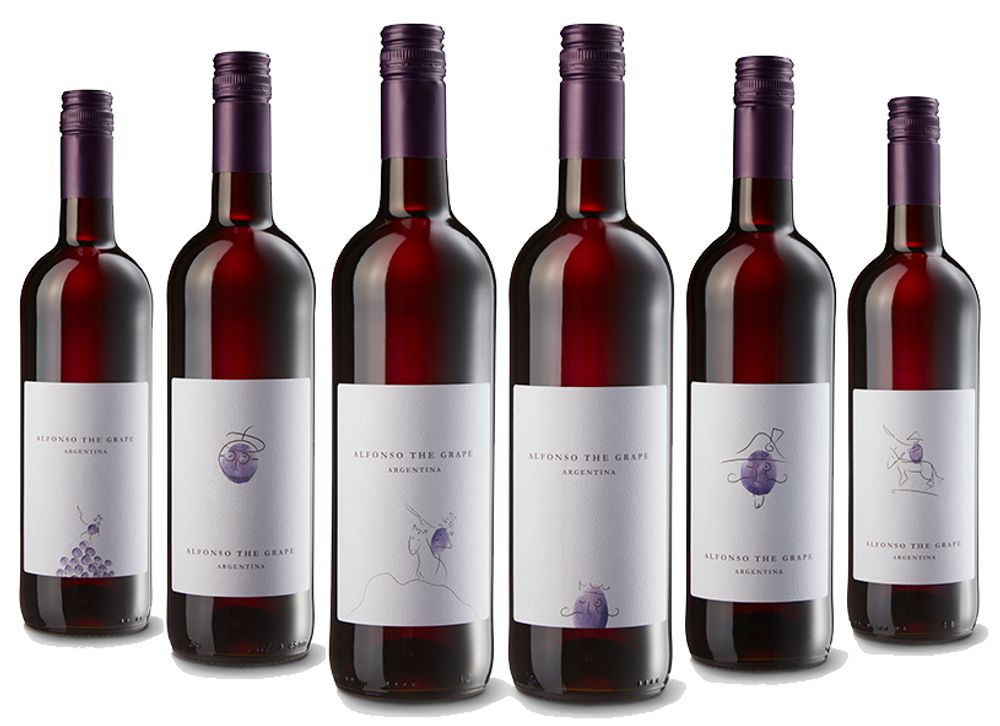
One of the bespoke ranges that Lanchester Wines has been able to create using sources of premium bulk wine
Sourcing challenges
The WBWE will also provide the platform for buyers to do what they do best – source wine. Or at least that’s what they hope they can do.
“It is not going to be easy”, says Porton,”after the year we have had in both the Northern and Southern Hemispheres.
The weather events of recent months have seemed almost biblical in proportion.I feel like we are waiting for a plague of locusts to come. We have not known a situation where this number of countries is short of wine. Then you add in the shipping delays on top of that,” he says. “You normally get one or two countries with supply issues, but this year has just been astonishing with the number of climate issues we have seen with just one vintage.”
Lanchester Wines and The Wine Fusion have both looked to get ahead of the market by looking elsewhere for some of their key suppliers, with South Africa taking up a lot of the slack from New Zealand.
The good news is, they stress, if you can get the flavours and commercial proposition right then you can take the consumer with you to different parts of the world. Hence the success of its Moloko Bay Sauvignon Blanc from South Africa which hasin part replaced its usual supply from New Zealand.
“When Argentinian Malbec pricing skyrocketed a few years ago,we moved much of our supply to Chile, South Africa and France” Roberts adds.
The growth in premium bulk wines has also come at a good time, says Porton, as it gives buyers and importers more options to work with. “There has been an openness to buy wines from different regions and countries and that also comes through in the tastings we are doing.”
But the fact the pendulum has swung so far over to trying new things, which was very much a key trend of the pandemic, both from within the trade and the public, is potentially a key moment for the wine industry which will be very much a major theme of next week’s WBWE.
* Source: https://hillebrand.com/media/publication/lanchester-wines-and-hillebrand-talk-bulk-logistics
World Bulk Wine Exhibition: Conference Highlights

- You can find out more bout what is happening at WBWE on November 23 and 24 at its main website here.
- You can access the full conference agenda here which also includes talks by:
- Robert Joseph, consultant and winemaker, and Polly Hammond of 5Forests digital agency on wine’s key challenges post-pandemic. (November 22 11.45am)
- Dennis Doorakers will host a tasting of canned wine at 12.45pm on November 22.
- Horst Mueller, vice president of VinLog by Kuehne & Nagel will look at current logistics challenges (3.15pm November 22)
- Jean Luc Favarel, chief operating officer at Pera Pellenc will examine the impact of Covid-19 on bulk wine sector (4pm November 22)
- Sustainability, the circular economy and bulk will be debated by Prof. Dr. Marc Dressler of the Weincampus Neustadt, Juan Carlos Sancha of Bodegas Juan Carlos Sancha and Mark Roberts of Lanchester Wines ( 11am November 23)
- Bulk wine tasting with Lanchester Wines and The Wine Fusion at 11.45am November 23).
- Bulk wine and e-commerce opportunities with Felicity Carter, of Pix.wine and
- Andrew Porton at The Wine Fusion (1.30pm November 23).
